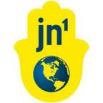David Brooks, “The Tel Aviv Cluster”. The New York Times, 11 January 2010.
| Here there might be your banner
 Web-site News  THANK YOU FOR SUPPORT  Jewish News One  Help the Jews Home 

Jewish virtual library |
| adjustment | Designed by MediaTerra |
|
About us Live Israel ! Aliyah Russia - Israel Post Box Balagan News Open letters Double gratitude from Moscow to US President Donald TrumpNOT GENOCIDE BUT A HUMANITARIAN MIRACLE !ANYONE WHO INSISTS ON A PALESTINIAN STATE IS DEPRIVING THE PALESTINIANS ...Open Letter to Prime Minister of NorwayOPEN LETTER to Senator Elizabeth Ann WarrenTO DEFEND HUMAN RIGHTS OF PALESTINIANS WOULD BE THE REAL WAY TO PEACE AT THE MIDDLE EAST.OPEN APPEAL TO JIMMY CARTER AND MARY ROBINSONThe MOST ImportantPETITION URGING PM NETANYAHU TO ADOPT LEVY REPORTColumn One: Let’s embrace our friendsWhy Palestinians Want This Video RemovedVery simply about "The ME Conflict".Pastor John Hagee: "Ani Yisreali - I Am An Israeli"Ben-Gurion speaks in 1947.ISRAELPlease support the Petition "Stand for Israel, Stand for Reason"American Chrisians Appeal to protest cutting US aid to IsraelPianist Kissin protests against BBC anti-Israel biasHow Did Israel Become “Start-Up Nation”?Israel: A Leader in Business Innovation. You-tube and Book.Elena Bonner speaks on Israel at the Oslo Freedom ForumPetition against the anti-Israel boycott by Trondheim University61 years of Israel: The last man to bear witness to IndependenceRupert Murdoch speech on receiving National Human Relations Reward of the American Jewish CommitteeHas Israel learned its lesson?NO to negotiation on deviding Jerusalem !Elena Bonner about NATFHE boycott of Israel scientistsIsrael’s economy is now growing at over 6.6%The Arabs play "bakshish" cardThe Promised LandPLEASE STOP ! NO to Any TransferBenny Elon’s Peace PlanStatement by Elena Bonner, May 2004Human Rights Support of Benny Elon’s PlanLetter to Swedish Prime-Minister, January 2004Positive reaction of JAFI to the Appeal “Hebrew SOS from Russia”Where is Jerusalem?Saviors of Mankind60 years of Israel Let us sing in Hebrew togetherOd Million EhadShalom IsraelAbsorption informationA Letter from the Minister of Immigrant Absorption Collection “Haverim: Russia - Israel”, some pagesRussian oil on the territory of Israel“The voices” of Russia and Israel are going to flow togetherThe First Public Forum-ConferenceDays of Israel Culture Russia: In memory of Andre CeelenIsraelPurim Miracle of 1953The Arab oil era is overWORD WAS IN THE BEGINNING !Deaths of 160 Palestinian Children Forced to Work on Terror TunnelsGaza strip - as a Israel-EgyptThe Most Important Video About Israel Ever MadePerhaps Waqf itself is just a horror-illusion and does not exist at all?Norway Delegation: Israel Belongs to the JewsWhy Israel Opposes International Forces in the Jordan ValleyIndependence Day in Shdema: More Growth, More IsraelThe Party FaithfulSpaceIL: Israel’s race to the moonSummary - 3rd Conference for the Application of Israeli Sovereignty over Judea and SamariaFor Former Soviets in the West Bank,The PA is the First Victim of its Own Reckless UN BidFull Report (all Talks in English and video) about conference for the Application of Israeli"The Balfour Declaration - 2013":The Slow-Motion Exodus of European JewsVoices from the Home Front: How Israelis Live Under FireProduction of Israel A-bombsNetanyahu Draws "Red Line" for ObamaIsraelis have a legal right to settle all Judea and Samaria"Eventually, All Humans Will Be Palestine Refugees"History of Jordan, Jordan as Palestine"The Particion of Palestine"ACT NOW! Protest UNESCO VoteTURKEY AND EGYPTSderot: Rock in the Red ZoneOn the eve of Tisha B’Av, artifacts were exposed that breathe new life into the storyMass social protests may open new Era in Israel DevelopmentCondolences to Norwegian friendsJOIN PETITION13 May 2011. Norwegian Academic stands for Israel and condemns anti-Semitism of Norwegian politicianIsrael hails success of new rocket interceptorIsrael scientists created the absolute Tank defense systemPassionate Word for Israel by UK intellectual Melanie Phillips interviewed on Israel TVAvigdor Liberman. UN Speech of 28 September 2010“I have a premonition that will not leave me; as it goes with Israel so will it go with all of usDavid Brooks, “The Tel Aviv Cluster”. The New York Times, 11 January 2010.Boris Altshuler received the Man of the Year 5769 (2009) FJCR Award | |||
| |||
|